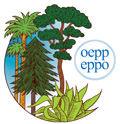
67th Council Session
Antalya, TR, 2017-09-27/28
EPPO Council met for its 67th annual session in Antalya (2017-09-27/28) as guests of the Ministry of Food, Agriculture and Livestock of the Republic of Turkey. Ms Karola Schorn (Chair) welcomed delegates from 24 EPPO member countries and an observer from the FAO Regional Office for Central Asia. Mr Ward announced that he would be retiring after his five year term as Director General finishes at the end of 2018. The post would be advertised early in 2018, shortlisting would be carried out by the Executive Committee and elections would be held at the Council meeting in September.
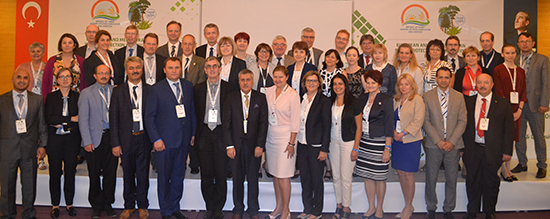
Council delegates – more pictures ![]()
A minute’s silence was held before the report of the Working Party on Phytosanitary Regulations, to mark the untimely death earlier in 2017 of Dr Jens Unger, and his enormous contribution over many years to the improvement and harmonisation of plant health rules within the EPPO region and globally. Mr Steve Ashby was awarded the 18th EPPO Gold Medal for long service to plant health, culminating in his chairmanship of the Commission on Phytosanitary Measures in 2013 and 2014.
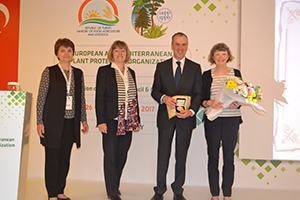
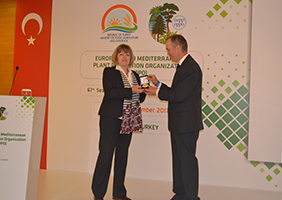
EPPO Gold Medal awarded to Mr Steve Ashby
Annual and financial reports and the work programme and budget for 2018 were approved, including a 0.5% increase in contributions. News was received and welcomed of plans by Montenegro to join EPPO. A collaboration agreement with the Eurasian Economic Commission was endorsed (and has since been signed) and news on collaborations between EPPO and EFSA was shared. Twenty six new or amended Standards were adopted, and Council noted nine amended diagnostic protocols which had already been approved through a fast track procedure. Fifteen species were added to the list of pests recommended for regulation. Council endorsed a Working Party conclusion that soil and growing media with plants are high risk for plant health, but that evaluating the specific risks is not a priority. Council agreed that the first step should be that import is restricted, so that the industry needs to provide information for the approval of a specific growing medium (other than the inorganic media in the Annex to ISPM 40).
Updates were provided on the main work programme of EPPO, such as the six workshops held during 2017 which are reported elsewhere on this site. News was also shared on a wide range of projects being undertaken or hosted by EPPO. These projects currently make up about a third of EPPO’s activity, and are funded by EPPO or external funders or both. In the case of the Euphresco research funders network and the EU Minor Uses Co-ordination Facility they have their own governance arrangements. EPPO funded projects include work on development of EPPO Codes, and a proposal, which was welcomed by Council, to update EPPO datasheets over the next two or three years. Projects funded externally include the development of a list of Regulated Non Quarantine Pests for the EU and the risk assessment of 16 species of invasive plants, also for the EU. EPPO has participated recently in a number of research projects and updates were provided to Council on DROPSA, EMPHASIS and Xfactors.
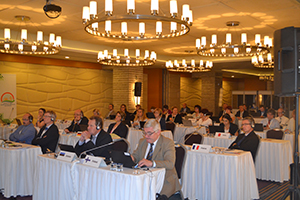
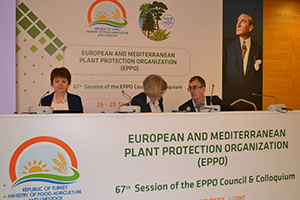
Finally representatives of Latvia and Jersey were elected to the EPPO Executive Committee to replace Austria and Algeria who were coming to the end of their terms. Representatives of Switzerland and of Bosnia and Herzegovina were each asked to stay on the Executive Committee for a fourth year to ensure continuity.
More information on the activities reported is available elsewhere on this site. Adopted Standards were published in the December issue of the EPPO Bulletin.
EPPO is grateful to the NPPO of Turkey for their hosting and organisation of this Council session and the colloquium on biological control and technical visit which followed.
